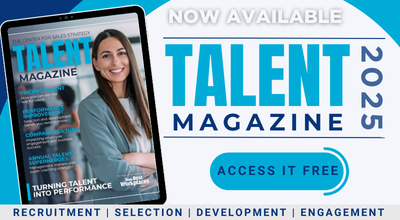
One of the most common sentiments that leaders share is, “How can our company keep great people?”
And, as if this wasn’t already enough of a challenge, recent data is showing a new trend of high turnover in our current economy.
Here’s what we know about turnover.
Facts About Turnover
- Turnover measures separations—employees who leave a company—within a certain time period. Separations include everyone who is no longer with the company, regardless of the reason.
- This includes those who exit voluntarily as well as employees who are fired or laid off—often referred to as involuntary turnover.
- Turnover is expensive. Gallup estimates the cost at between one-half to two times the salary of the employee being replaced.
- Typically, high turnover means 28% of your new employees quit within the first 90 days of their employment. Over 40% of employees who leave within the first year do so in the first 90 days.
And this is precisely the reason so many leaders worry about keeping their talent. High turnover means an enormous cost to companies because it leads to the constant repetitive cycle of recruiting, selecting, hiring, and training new people. Not to mention the possibility of losing their top talent to the competition.
Why Is Turnover So High?
Let’s take a closer look at what is driving the current trend of high turnover in today’s workplace:
A Competitive Job Market
A strong job market with lots of opportunities can lead to higher turnover rates as employees have more options to explore other roles. They may leave their current positions and companies in pursuit of higher salaries, better benefits, or improved career prospects elsewhere.
Burnout and Stress
Burnout is a major factor in turnover. A recent Deloitte survey indicated that 77% of respondents felt burned out at their present jobs. According to the survey, employees also do not believe their employers are doing enough to improve workplace stress levels, especially following the pandemic.
Skills Mismatch
Rapid technological advancements, including the advancement of Artificial Intelligence (AI), require employees to continuously update their skills. Those who feel their skills are becoming obsolete may leave their current jobs to pursue opportunities that allow them to acquire or utilize more relevant skills.
Company Culture and Engagement
Poor company culture, lack of opportunities for professional growth, and low levels of employee engagement can drive turnover. Employees are more likely to stay with organizations that prioritize their well-being, provide opportunities for advancement, and foster a positive and inclusive work environment.
Remote Work Challenges
The pandemic shifted the way we work. While remote work offers flexibility, it can also present challenges such as isolation, communication difficulties, and blurred boundaries between work and personal life. Employees who struggle with these issues may opt for jobs that offer a traditional office environment or a more structured work arrangement.
How To Improve High Turnover Rates
Fortunately, there are many ways to improve and turn around high employee turnover. Organizations can:
- Focus on improving their recruitment and retention strategies.
- Offer competitive compensation and benefits packages.
- Address burnout and mental health issues.
- Provide ongoing training and development opportunities.
- Actively work to enhance their workplace culture and seek direct feedback from employees, using tools like employee surveys to identify specific factors driving turnover at your organization.
Doug Conant, founder and CEO of Conant Leadership, and former president and CEO of Campbell’s Soup, said it best, “To win in the marketplace, you must first win in the workplace."




